Just as Voldemort’s name cannot be used for fear of conjuring him up, so too we have declared a taboo in our house on the B word (the one to do with the EU) and on the name of the Prime Minister. Nonetheless, we are going to be living with the consequences of both for many years, and regular readers will know that my heart breaks about immigration and fellowship, while my head worries about co-operation – in education, in science, and in law and justice. I have stopped my ears to the endless bumptious pronouncements of the man in Number 10 and choose instead to judge him on his deeds. And the measure of the man has become apparent even more quickly than I had feared: his minions have launched a consultation into the creation of ten freeports by the end of next year.
You can detect his touch in the introduction to the consultation paper, which tells us that “in the Ancient World, Greek and Roman ships – piled high with traders’ wines and olive oils – found safe harbour in the Free Port of Delos, a small Greek island in the waters of the Aegean”. And now it is the turn of the UK (whatever bits of it remain at the time) to create freeports that will “serve as humming hubs of high-quality manufacturing, titans of trans-shipment and warehouses for wealth-creating goods and services”. (I must admit I thought that consultation documents were meant to maintain studied neutrality in order to garner an objective response. Apparently not.) And to create these humming hubs, “we’re also looking at regulatory flexibilities, funding and challenges which will support innovators generating new ideas”. And there it is: “regulatory flexibilities”. Every time we hear a phrase like that, a compliance officer loses his wings.
Although the usual lip-service is paid to meeting the requirements of AML legislation, no mention is made of the EU’s “Supranational risk assessment of the money laundering and terrorist financing risks affecting the Union” which was published in July 2019 and named freeports as one of the new sectors posing greatest risks. Nor of the handy document published by the European Parliament in October 2018 on “Money laundering and tax evasion risks in free ports”, which puts it rather bluntly: “Free ports are conducive to secrecy. With their preferential treatment, they resemble offshore financial centres, offering both high security and discretion and allowing transactions to be made without attracting the attention of regulators or direct tax authorities.” And others are as unconvinced as I am. Shadow Chancellor John McDonnell said that “there is very little solid evidence that so-called freeports create jobs or boost economic growth [and] this plan represents a levelling-up only for the super-rich, who will use freeports to hoard assets and avoid taxes”.
If you’d like to have your say, the consultation – open to anyone, anywhere in the world – will run until 20 April 2020 and you can respond online. As for me, my say hasn’t counted for much recently, but I’ll carry on having it.






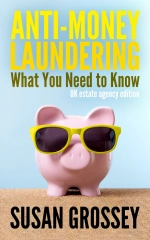

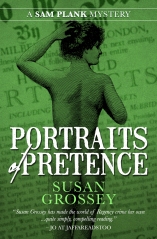



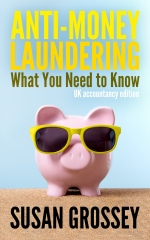

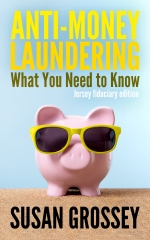

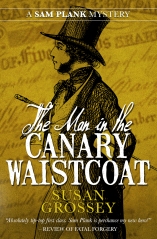




Not content with cuts to financial investigators, fraud investigators, the CPS and the justice system generaly, it now seems that the government seeks to encourage crime directly. The creation of Freeports is one of the few policies being pursued by the government proactively. As BJ himself would say ‘Alea jacta est.’
Whenever BJ says ding dong, ‘a compliance officer loses his wings’. I laughed at that one.
It’s like being in Alice’s Wonderland, where nothing makes any sense – what should be encouraged is mocked, and what should be shunned is welcomed with open arms. Mind you, it saves a bit of thinking: I know instantly that if this government is supporting something, it’s a bad idea.
Once the UK was home to all the plunder of its empire, now diminished and alone it decides its future lies in becoming a place everyone else can store their plunder.
Brexit Britain is open for business…just don’t ask what sort of business, ok (we certainly won’t)?
That’s putting it perfectly, Robert – it’s shameful in the extreme. I fear we will cede every inch of moral high ground in the full-blooded pursuit of profit.
Pingback: Underfunded, under-supervised and over here | I hate money laundering
Pingback: Underfunded, under-supervised and over here - Art Money Provenance